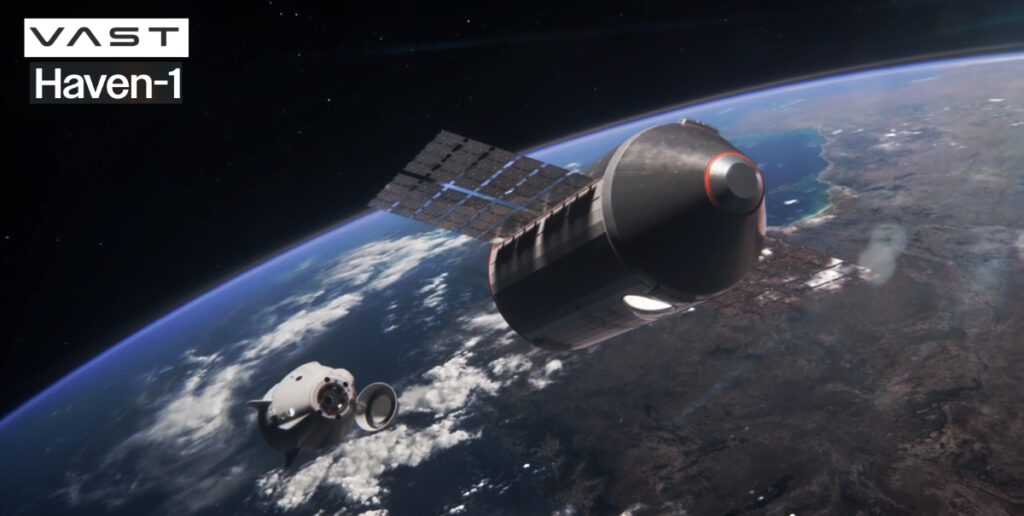
Vast, the pioneering space habitation technology company, has announced that Japan Manned Space Systems Corporation (JAMSS), Interstellar Lab, and Exobiosphere as the latest payload partners for its Haven-1 Lab, the world’s first commercial crewed microgravity research and manufacturing facility in space—unlocking a new era of orbital innovation through a fully commercial platform. Launching inside Haven-1, the world’s first commercial space station, the lab is on track for deployment in May of 2026 and is already nearing full capacity.
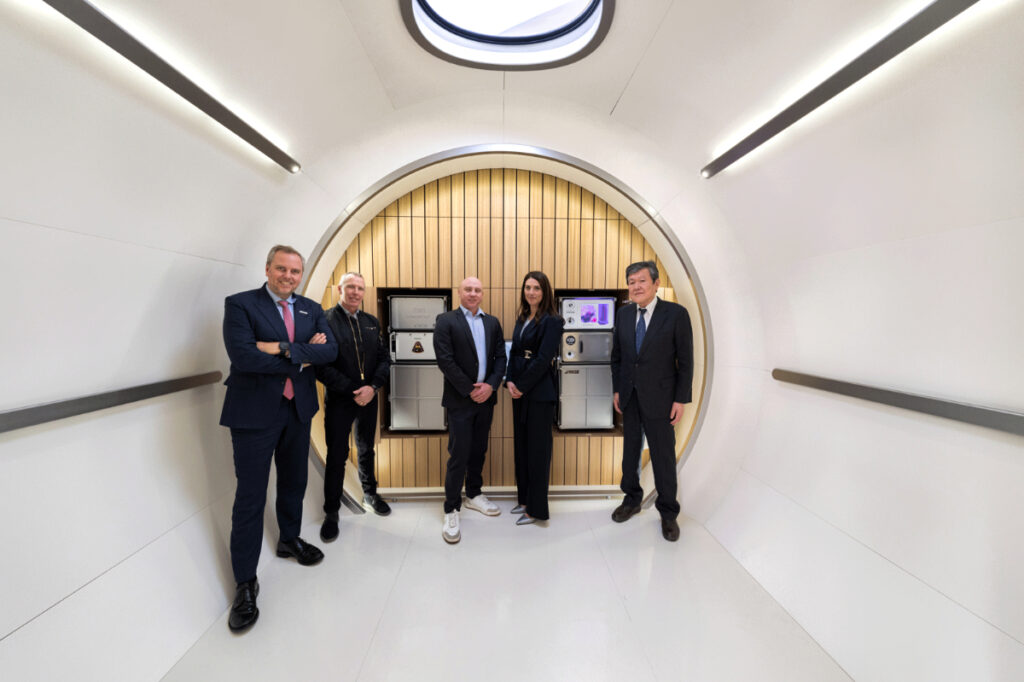
The three companies—leaders in space systems, biotechnology, and pharmaceutical research—join existing Haven-1 Lab partners Redwire and Yuri, reinforcing Vast’s mission to enable international collaboration in Low Earth Orbit (LEO) and accelerate scientific breakthroughs that benefit humanity and support long-term space habitation. The new partners will leverage the microgravity environment of the Haven-1 Lab by installing payloads focused in the areas of advanced materials development, biotechnology, and pharmaceutical development.
We are honored to welcome our new partners to the Haven-1 Lab—an essential step toward building a thriving ecosystem for science, innovation, and collaboration in space. These partnerships reflect a growing global recognition that microgravity is not just a research environment, but a catalyst for transformative breakthroughs. With Haven-1, we aim to redefine what’s possible in biotechnology and pharmaceuticals—accelerating discovery, enhancing safety, and unlocking new frontiers for life on Earth and beyond,” said Max Haot, CEO of Vast.
JAMSS, founded in 1990, is a Japan-based leader in the specialized development and management of space systems and technology, and has most notably operated Kibo, the Japanese Experiment Module on the International Space Station (ISS). JAMSS will develop a multi-purpose payload facility that accommodates microgravity experiments and small payload modules. These sub-payloads include devices for colloidal photonic crystallization (a process for developing advanced optical materials), interfaces for commercial merchandise items, and many other applications.

Partnering with Vast, the pioneer behind the world’s first commercial space station, is about more than just expanding the number of LEO applications. This collaboration can help elevate awareness of the commercial LEO market across Japan and Asia, and we are deeply committed to supporting this initiative,” said Teru Aruga, President of JAMSS.
Interstellar Lab, founded in 2018, is a U.S. and French-based company developing autonomous AI-powered greenhouse systems and studying how plants grow in LEO. Interstellar Lab’s Eden 1.0 is a next-generation BioCapsule engineered for advanced life science research on orbital stations. A direct spin-off from Interstellar Lab’s food production system NuCLEUS, which won the NASA Deep Space Food Challenge, Eden 1.0 is a fully automated controlled-environment greenhouse with autonomous climate and light and fertigation control. Equipped with several sensors and cameras, Eden 1.0 captures real-time data, allowing Interstellar Lab to perform comparable experiments on the ground. The goal is to measure and understand the impact of microgravity on plant growth, including nutrient dynamics, phenotyping, and genetic adaptation.
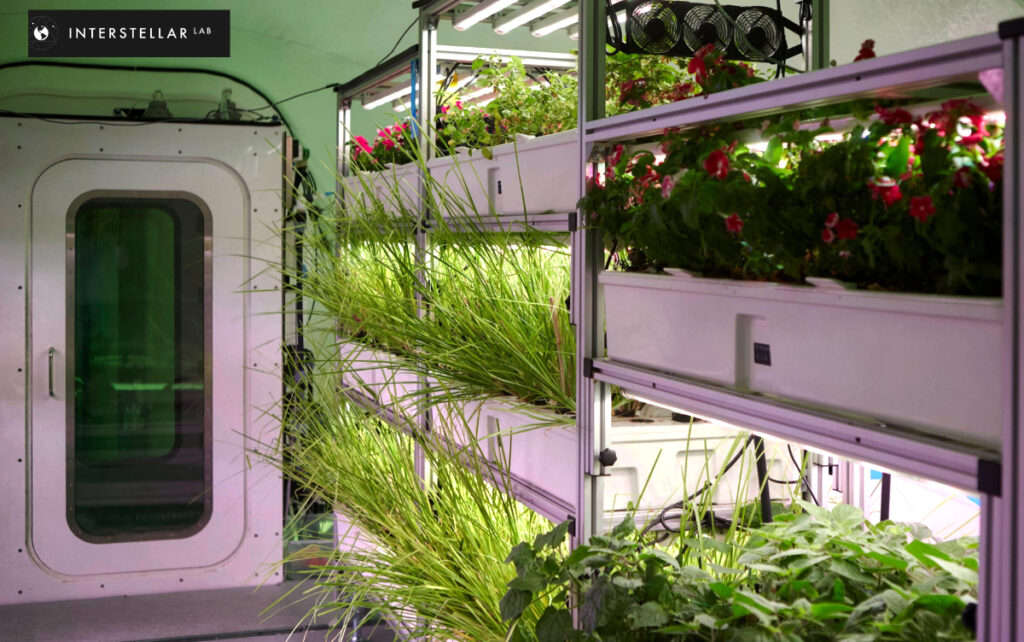
We are excited to take our technology into space in partnership with Vast,” said Barbara Belvisi, CEO and Founder of Interstellar Lab. “With Eden 1.0 in the Haven-1 Lab, we can provide new plant growth capabilities in space to conduct research and measure how biological life responds to low gravity environments. It’s a crucial step towards our larger vision of providing advanced bioregenerative life support systems for future habitats on the Moon and Mars.”
Exobiosphere is a Luxembourg-based space biotechnology company that develops high-throughput screening platforms in space to accelerate drug discovery and streamline pre-clinical trial testing. Exobiosphere will install its Orbital High Throughput Drug Screening Device (OHTS) to conduct microgravity experiments that can accelerate cell growth and uncover cellular behaviors that are not observable under Earth’s gravity. Results from OHTS will provide pharmaceutical, biotech, and healthcare companies with insights to create therapeutics to improve human life on Earth and in space.
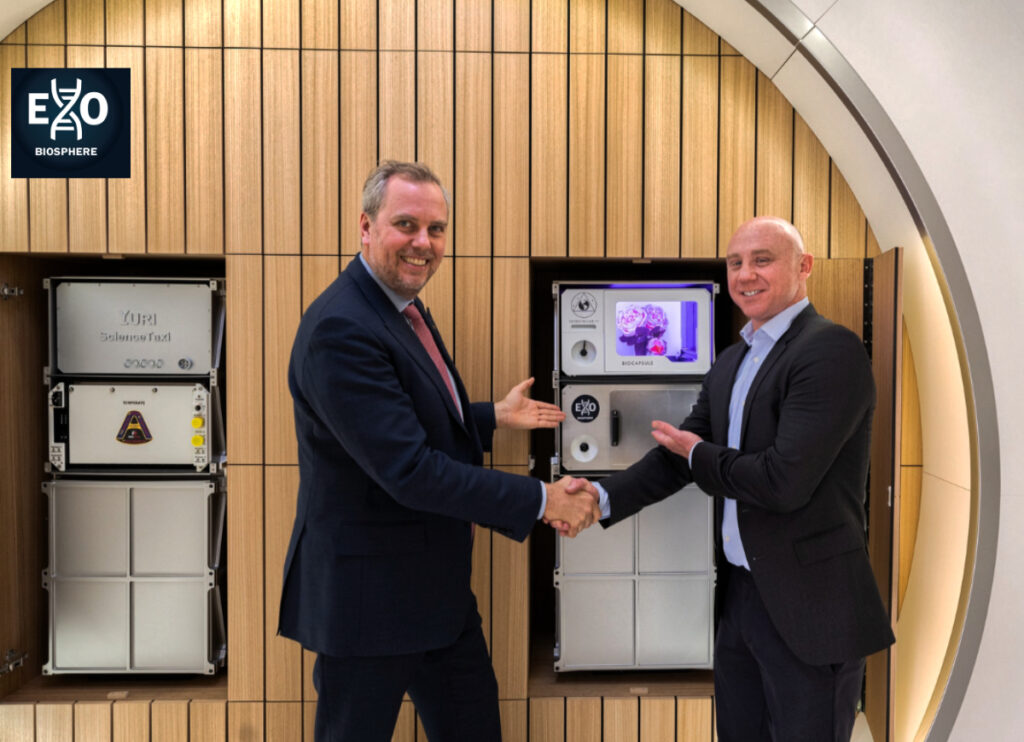
Vast’s Haven-1 Lab offers state-of-the-art in-space research and science facilities for our high-throughput screening platforms. Partnering with Vast propels our vision to revolutionize drug discovery,” said Kyle Acierno, CEO of Exobiosphere. “Microgravity gives us a powerful new vantage point to explore disease at the cellular level. By integrating our high-throughput platforms with Haven-1’s advanced facilities, we aim to dramatically speed up breakthrough therapies and reshape how we approach healthcare on Earth and beyond.”
This milestone and expansion of Haven-1 Lab partners underscores the company’s steadfast dedication to aligning with global objectives for LEO innovation and opening the commercial LEO economy to more countries and companies.
Vast signs agreement to leverage the ISS National Lab
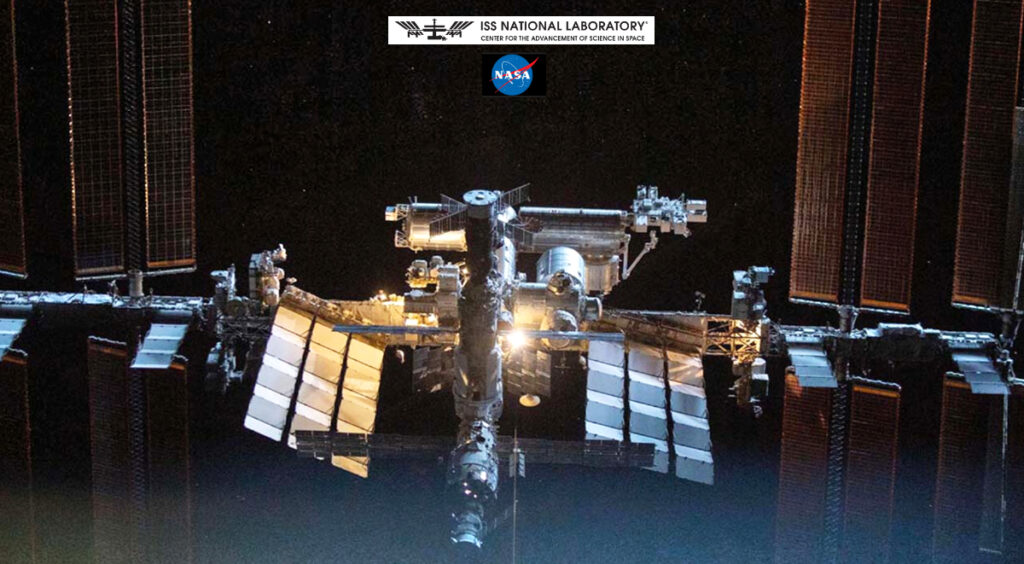
Vast has signed a strategic agreement with the Center for the Advancement of Science in Space® (CASIS) to support scientific research through the International Space Station (ISS) National Laboratory. This milestone partnership reinforces Vast’s commitment to advancing space-based research and strengthens its position as a key player in NASA’s private astronaut missions (PAM) to the ISS.
CASIS, manager of the ISS National Lab, awarded the partnership based on Vast’s innovative spacecraft designs and its forward-thinking technical and commercial approach—elements that are poised to enhance on-orbit service technologies, expand access to the ISS for new user groups, and benefit life for humanity through space-based research.
Under the agreement, CASIS will collaborate on initiatives proposed by Vast designed to accelerate advancements in scientific discovery, commercial applications, and space station technology. The agreement also supports Vast’s plans to conduct research proposed by astronauts and agencies collaborating on future NASA private astronaut missions.
Vast and CASIS share a common vision: to broaden commercial and international access to the unique research environment of space as a critical step toward building a thriving LEO economy. Their collaboration will facilitate research with long-term benefits for humanity and drive innovation in space exploration.
Last year, Vast announced plans to compete for the next two anticipated NASA PAMs. That commitment was further reinforced in December, when Vast formalized an agreement with SpaceX for two Dragon missions to the ISS in support of a future bid for PAMs.
This agreement gives Vast direct access to the ISS—a critical step as we prepare our NASA Private Astronaut Mission bid,” said Max Haot, CEO of Vast. “It enables us to fly science, validate our technologies in microgravity, and continue close collaboration with NASA—all of which are essential as we advance the design of our proposed ISS replacement and solidify our role as a NASA Commercial LEO Development Program partner.”
The role of the ISS National Lab is to open access and opportunity for the research community, and those seeking to advance technologies onboard this unique orbiting outpost. We’re excited to collaborate with and support Vast as they ambitiously seek to push the limits of innovation, inspiration, and participation beyond Earth’s horizons,” said Ray Lugo, CEO of CASIS.
About Vast
Founded in 2021 by Jed McCaleb, Vast is developing humanity’s next-generation space stations and pioneering the path to long-term living and thriving in space. Haven-1, scheduled to be the world’s first commercial space station, is currently in development and is expected to launch NET May 2026. Vast is also developing Haven-2, the proposed successor to the International Space Station (ISS), designed to serve NASA’s Commercial LEO Destinations (CLD) program as a micro-gravity laboratory in space. Vast’s long-term ambition is to create artificial gravity habitations that enable humans to live in space, reaffirming its commitment to ensuring a spacefaring future for all.
